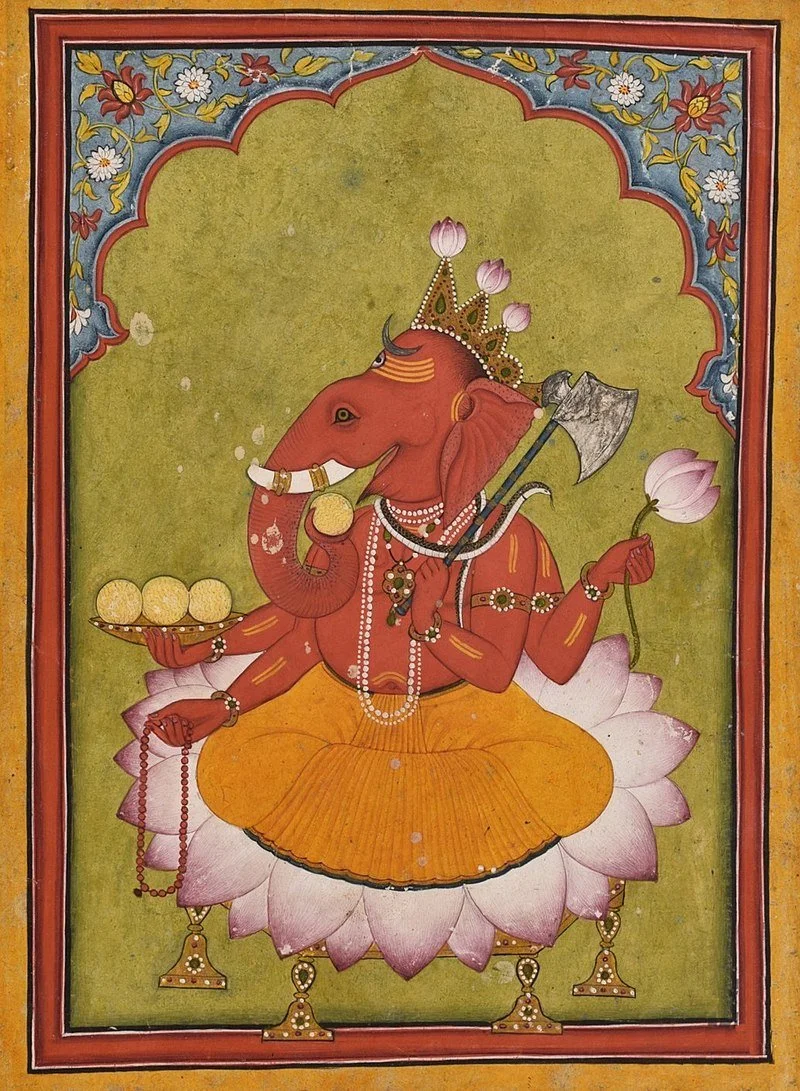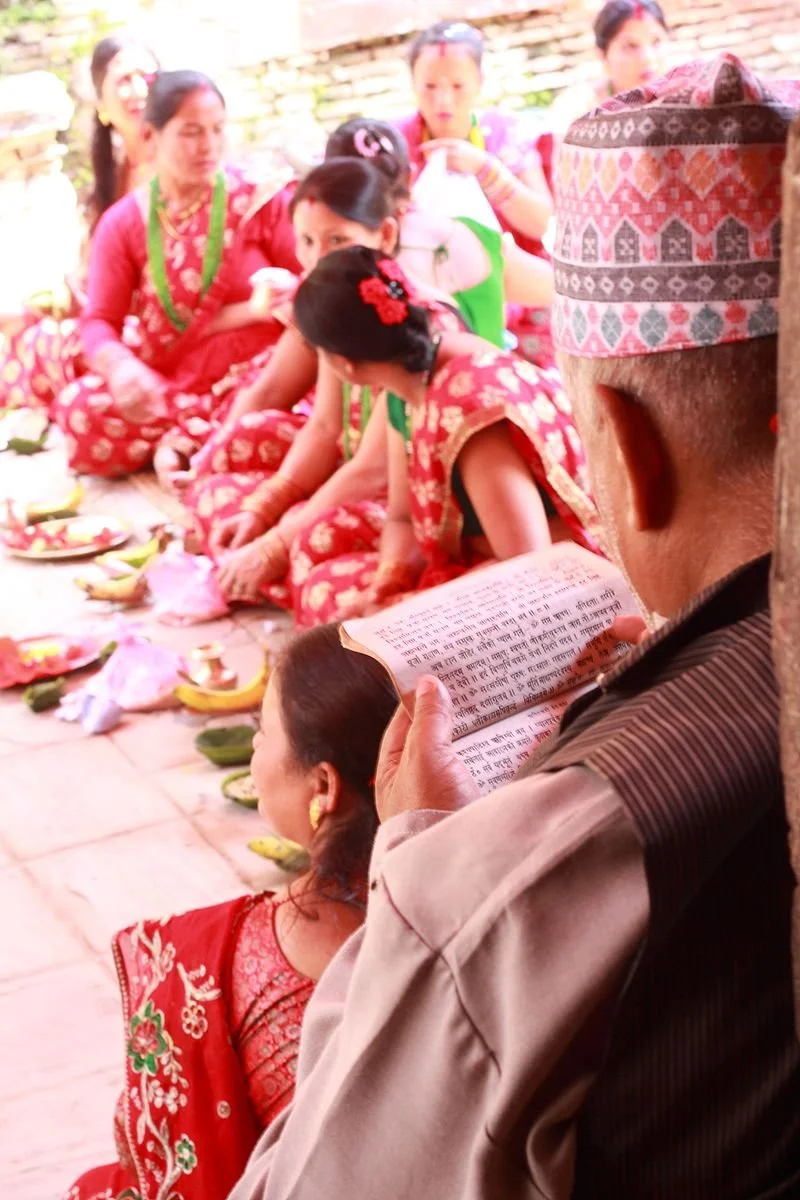How Ganesh Chaturthi and Rishi Panchami Could Help Us Confront Disinformation
Basohli miniature, c. 1730. National Museum, New Delhi[3]
Ganesha’s large ears symbolize listening with humility. His trunk represents adaptability. His broken tusk speaks to sacrifice in service of truth.
This week, Hindus around the world marked Ganesh Chaturthi, followed closely by Rishi Panchami. Taken together, these festivals remind us of a wisdom our societies desperately need but too often ignore: the capacity to listen deeply, to remove obstacles to understanding, and to honor those who safeguard knowledge across generations.
Instead of drawing from this ethical reservoir, too much of our public life remains captive to disinformation, partisanship, and the cynical manipulation of faith. What should be celebrations of wisdom and unity are too often reduced to vehicles for division.
When Festivals Become Political Weapons
The irony is stark. In 1893, Bal Gangadhar Tilak reimagined Ganesh Chaturthi as a public festival meant to build solidarity against colonial domination. His vision was radically inclusive.
By 1894, Muslim music bands played at Ganesh celebrations. A year later, Muslims marched in the processions themselves. Tilak’s project was not about exclusion—it was about unity in resistance.
Contrast that with the present, where Hindu nationalists co-opt these same festivals to harden boundaries and inflame sectarian sentiment. What once symbolized solidarity now risks becoming a stage for division.
Ganesha’s Forgotten Lessons
Ganesha embodies much of what our current political moment lacks. As Vighnaharta, the remover of obstacles, he calls us to dismantle barriers to human dignity—whether rooted in caste, poverty, or communal hatred. His broken tusk models the willingness to sacrifice comfort for truth, and his great belly reminds us of the capacity to hold both joy and suffering without succumbing to cynicism.
These are not abstract images of devotion. They are practical instructions for resisting disinformation and authoritarianism: listen humbly, sacrifice for truth, and hold complexity rather than collapsing into false certainties.
Homage to the Sapta Rishis on the day of Rishi Panchami
Rishi Panchami and the Crisis of Knowledge
Just days after Ganesh Chaturthi, many Hindus observe Rishi Panchami, honoring the sages who preserved and transmitted knowledge. The sequence is deliberate: first, remove obstacles to understanding; then, cultivate discernment and wisdom.
That lesson speaks directly to our present. We live in an age of information glut but wisdom scarcity. Algorithms amplify outrage over accuracy. Political campaigns thrive on loyalty rather than truth.
The rishis, imagined at their best, would recognize this as a crisis of discernment. They knew that knowledge without ethics corrodes, and that learning without humility breeds arrogance. Their work was not only to preserve texts but to cultivate the courage to distinguish truth from falsehood. That is the discipline our democracies now lack.
To honor Ganesha in this mode is to challenge caste hierarchies and stand against communal hatred. To honor the rishis is to resist propaganda and defend rigorous inquiry. To honor both is to reclaim festivals from the grip of chauvinism and return them to their purpose: building communities rooted in dignity, solidarity, and truth.
This week’s festivals remind us of a choice. We can allow political opportunists to continue hollowing out our spiritual traditions, or we can reclaim them as sources of discernment and solidarity.
Ganesha’s ears remind us to listen—especially to those voices society sidelines. The rishis’ legacy calls us to separate truth from noise, propaganda from wisdom. Together, these festivals can offer a map through the fog of disinformation: remove obstacles to understanding, honor those who preserve authentic knowledge, and commit to truth that serves all, not just the powerful. That is wisdom worth celebrating. That is tradition worth preserving.


